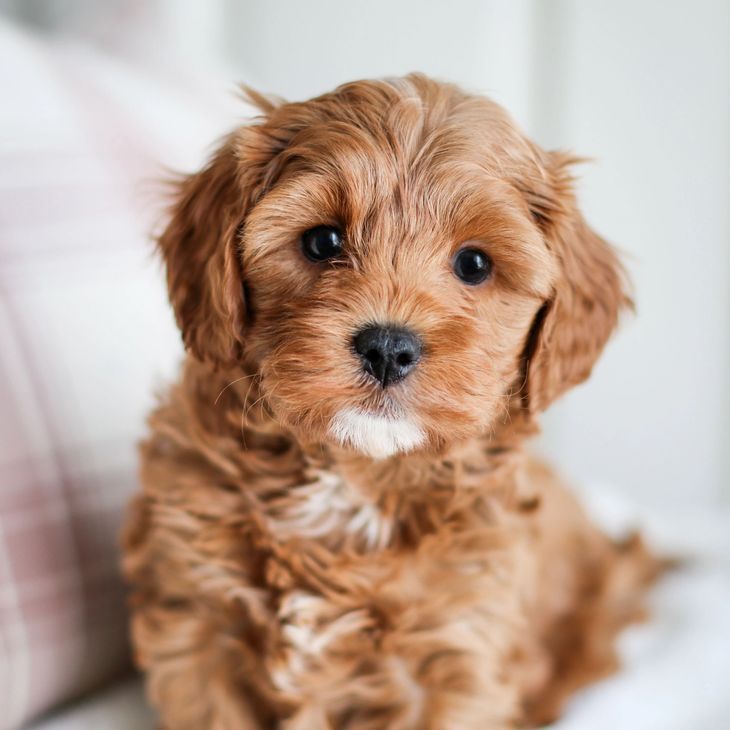How Much Sleep Do Puppies Need?
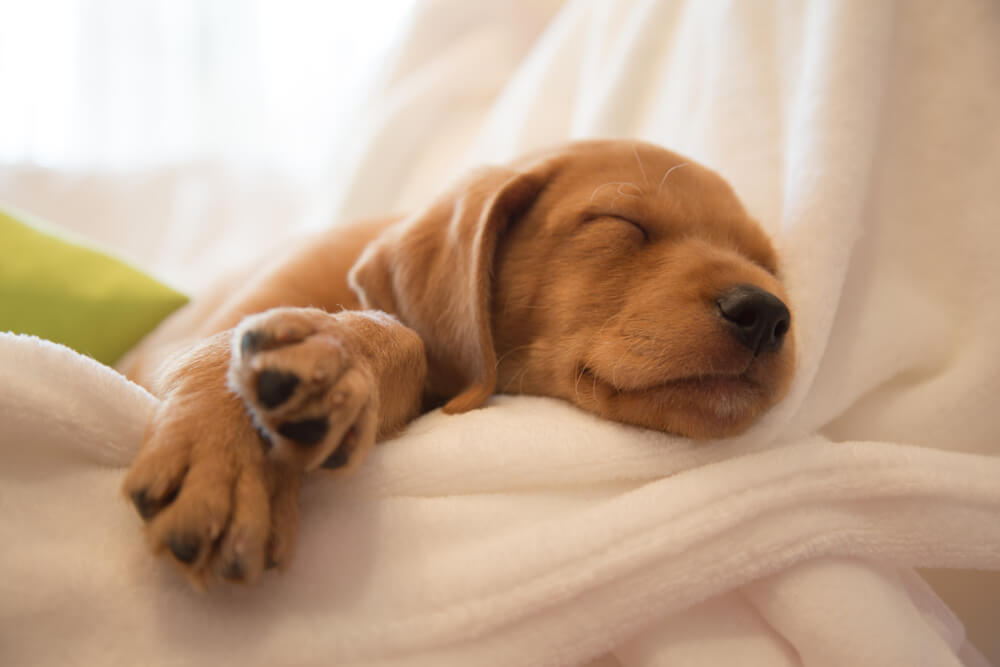
Table of Contents
Listen To The Article
Introduction to How Much Sleep Do Puppies Need
Puppies are little bundles of energy, they usually sleep 18-20 hours a day.
One minute your puppy may be a miniature tornado, and the next he’s fallen soundly asleep, almost mid-dash.
Sleep is essential to healthy growth, contributing to the necessary development of his central nervous system, brain, immune system, and muscles.
All of that sleep also helps him rest up during growth spurts.
When they’re awake, puppies burn a lot of energy growing physically, experiencing new people and places, learning what they can and can’t do.
Because the world is such an exciting, stimulating place, they won’t always pay attention to an internal clock telling them it’s time to rest.
There’s no one size fits all answer to how much sleep a puppy needs.
Each puppy is different, with different genes, a different environment, and different pet parents with varying schedules.
If your puppy wants to sleep, let her sleep.
If your puppy wants to play, play with her.
If you’re busy, make sure she’s got another pet or some fun toys to play with.
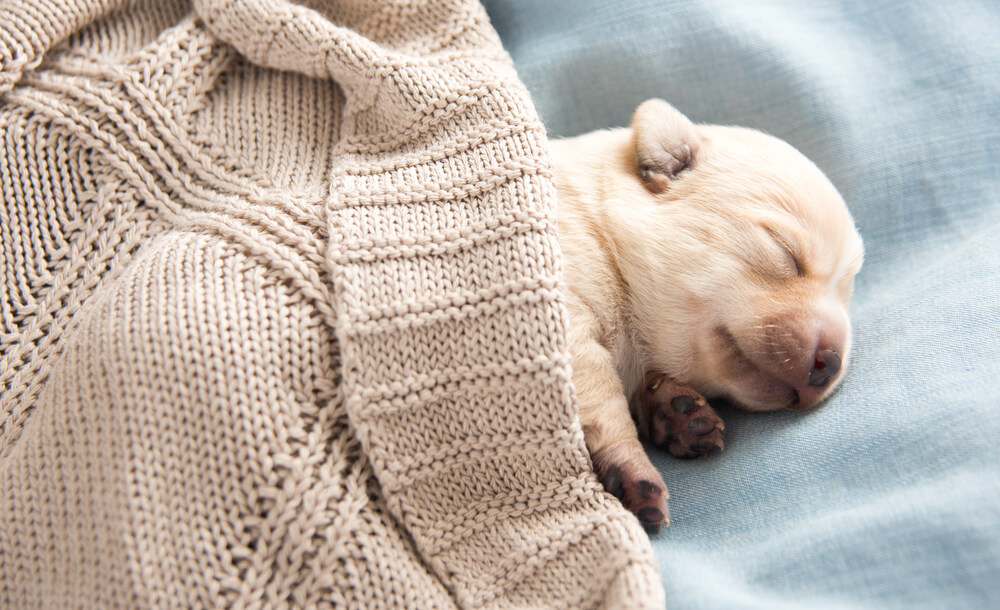
Why Is Sleep Important For Puppies?
Sleep is essential to your puppy’s vital functions.
It plays a part in energy conservation, brain waste clearance, immune system modulation, cognition, performance, disease, and psychological state.
Sleep loss during puppy development can result in reduced brain mass, neuronal death, and subsequent behavioral problems.
Impaired sleep in puppies is also a contributing factor in cases of cancer and type II diabetes.
Sleep is essential to your puppy’s life. Without it, it massively affects the control center and can cause a range of consequential health problems in their juvenile years.
Puppies undergo much more rapid development than the equivalent human child; for example, the average 7-week old puppy is as developed as a 9-month old human baby.
Dogs are also said to be fully matured anywhere between 1-2 years of age (depending on breed).
For a puppy to reach maturity (both healthy and happy), sleep is necessary for their cognitive changes, emotional challenges, and physical transformation.
Puppies use sleep to consolidate what they have learned that day.
Whether it is a new trick or simply to avoid chewing the legs of the chair.
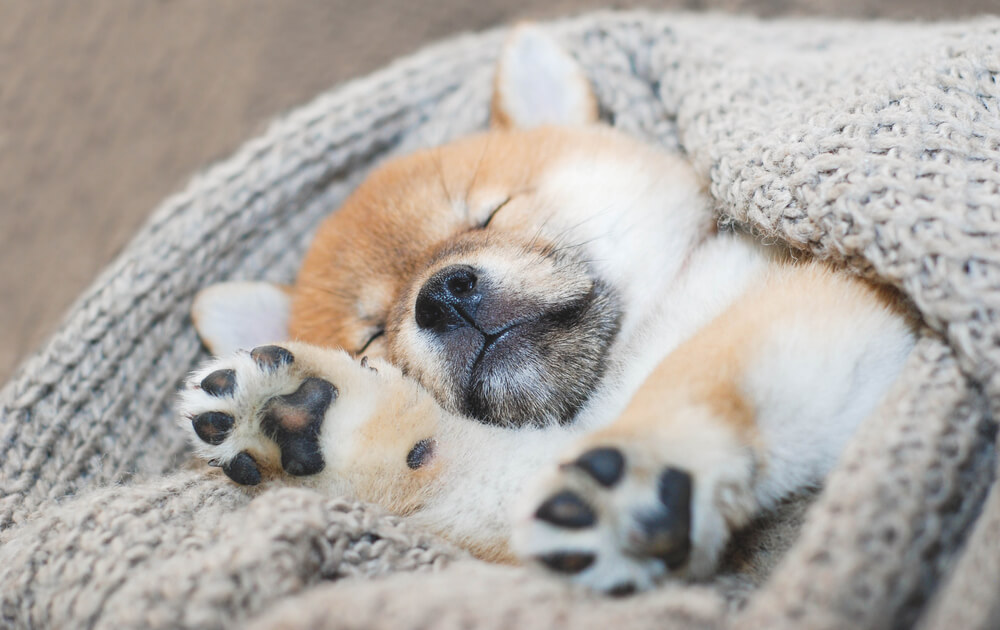
Is It Normal For Puppies To Sleep A Lot?
Healthy puppies need a lot of nap time, even 18 hours per day can be perfectly normal.
Puppies whiz around, using up a bunch of energy and building muscles and brain power, then they need to conk out.
Long stretches of nighttime sleep punctuated by frequent naps are fine even as many as 20 naps a day.
Your new puppy is a real ball of energy.
He or she can sometimes seem like a never-ending source of energetic excitement, but then it happens.
Your pup gets all tuckered out and can sleep for what seems like hours, even in the middle of the day.
What’s a healthy sleep schedule for a growing pup anyway?
Your growing baby dog needs sleep.
A lot of it.
Puppies sleep a lot during the daytime and typically require about 6 to 10 hours in the evening, too.
Your pup will likely pass out quite hard after getting a lot of activity in.
A walk around the block, some kisses, and play might be all it takes.
Then your pup will lay wherever he or she is and be quickly in dreamland.
Remember, puppies grow a lot more quickly than we do because of that rapid growth, they need to eat a lot, and they need a lot of sleep.
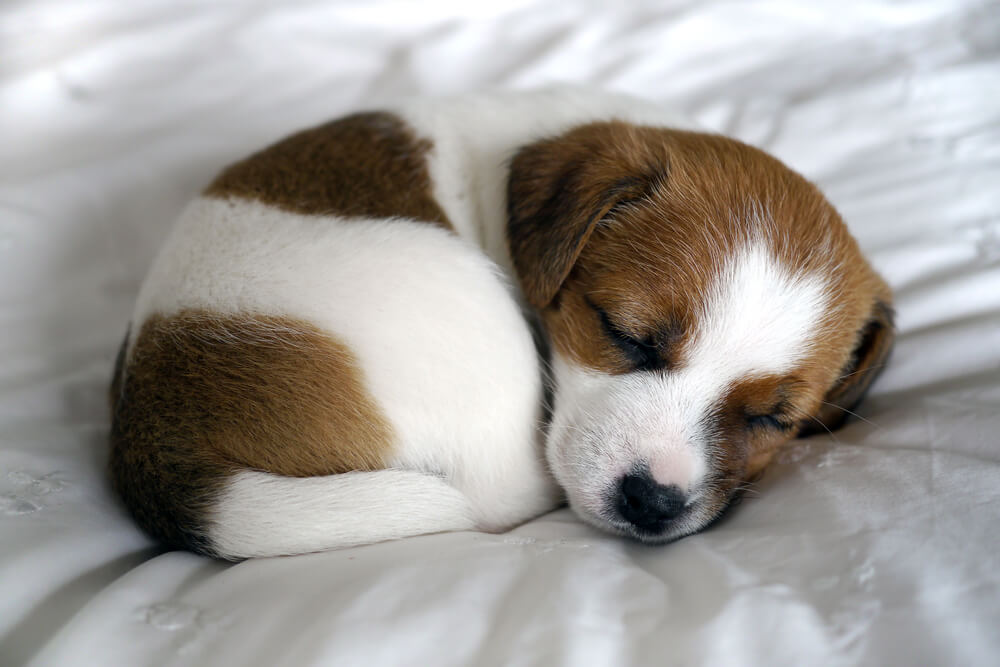
Getting Your Puppy On A Sleep Schedule
If your puppy wants to play when you can’t, like when you’re doing chores or work at home, or when it’s the middle of the night, it might be time to adjust your growing, impressionable puppy to your schedule.
But do it slowly.
Dogs are creatures of habit, and they adjust to our schedules, feed at regular times.
Go to bed at regular times.
Your puppy might be a little more energetic than an adult dog, but puppies adjust.
If you don’t want to play, give your puppy something to entertain him.
Puppies thrive on routine and structure.
Along with a feeding routine and house training routine, a sleep schedule will help you and your puppy adjust to living together.
Below are sample schedule that might help you on your way to establishing a good routine, for canine and human family members.
Morning Puppy Schedule
In the morning when the puppy wakes up, quickly take him outside to relieve himself.
Feed him breakfast.
Puppies usually need to relieve themselves after eating, so give him another potty break.
Spend 30-60 minutes playing with him, socializing, and taking a walk.
Nap time. He may sleep from 30 minutes to two hours.
Give him another potty break as soon as he wakes up.
Feed him lunch.
Afternoon Puppy Schedule
After lunch, give him a potty break.
For up to one hour, play with him and allow him to explore.
It’s nap time again.
Take him outside for a bathroom break when he wakes up.
And then it’s playtime again.
Chances are pretty good he’ll settle in for a nap after he plays.
Potty break.
Evening Puppy Schedule
Feed your pup dinner before you sit down, or give him a stuffed Kong to work on in the crate while you eat.
After dinner, take a walk.
Let him spend time playing and interacting with family members.
Give him a quick bathroom trip before bed, and then settle him down in his crate for nighttime sleep.
Don’t let the idea of a schedule overwhelm you, it may seem like a lot of work, but you’ll be rewarded with a happy, well-adjusted dog and you will come to enjoy the routine and this is a wonderful time for developing the bond and love that will last a lifetime.

How To Help Your Puppy Sleep More
If your puppy is struggling to sleep, it is likely associated with his emotional state.
When he was born, he was in a litter with his siblings and Mom.
Suddenly, he is brought home and is expected to sleep alone.
This is a large adjustment that can take a few weeks or months.
For some puppies, having another resident dog already in the home can help them settle, but if they are an only pup, then you may want to start their nights with you:
- Some owners would rather sleep on the sofa with their pup
- Some owners are happy to start crate training in their bedroom
The point of both techniques is that your pup knows you are close.
Slowly, you can move the crate out to just outside your bedroom door, and then finally downstairs or if you are on the sofa, maybe move to a sofa in another room before you head upstairs.
There is no evidence to suggest that being close to your puppy causes later separation anxiety.
Quite the opposite is true; when your pup is content, he is more likely to be emotionally stable.
Just as we would as humans, good sleep hygiene is crucial in helping develop good puppy sleep habits.
Routine is essential for puppies. Feed times are a good staple, try to stick to regular mealtimes, but don’t worry too much about walks and play at the exact time each day.
The other part of your job is to ensure quiet time before bed.
After their evening meal, you may do some calm obedience training if you want to, but for the 1-2 hours before bed, they should be relaxing just as you would.
Finally, making sure he has had enough exercise and play for the day is important.
Exercise is essential in promoting good sleep, reducing destructive behaviors, and bonding with your pup.

Never Wake Up A Sleeping Puppy
It’s important that you don’t wake your furry friend unless absolutely necessary.
Like us, puppies rest best when they’re relaxed and feeling secure in their environment.
So why does it matter so much if your puppy is woken up during the day?
Whilst asleep, your puppy is undergoing important brain development as well as physical growth.
They will also consolidate learning and memories whilst asleep.
As a result, waking your puppy can affect their memory and ability to learn.
Disrupting your puppy’s sleep often can also cause anxiety.
Your puppy needs to feel safe and secure whilst in this vulnerable state, and being regularly awoken might convey to them that it’s not safe to sleep around you.
To prevent any rude awakenings, be sure to keep your puppy’s crate in a safe, quiet area, away from children and other animals.
It’s best to teach children early on to not disturb a sleeping puppy, both for the well being of your puppy and the safety of your child.
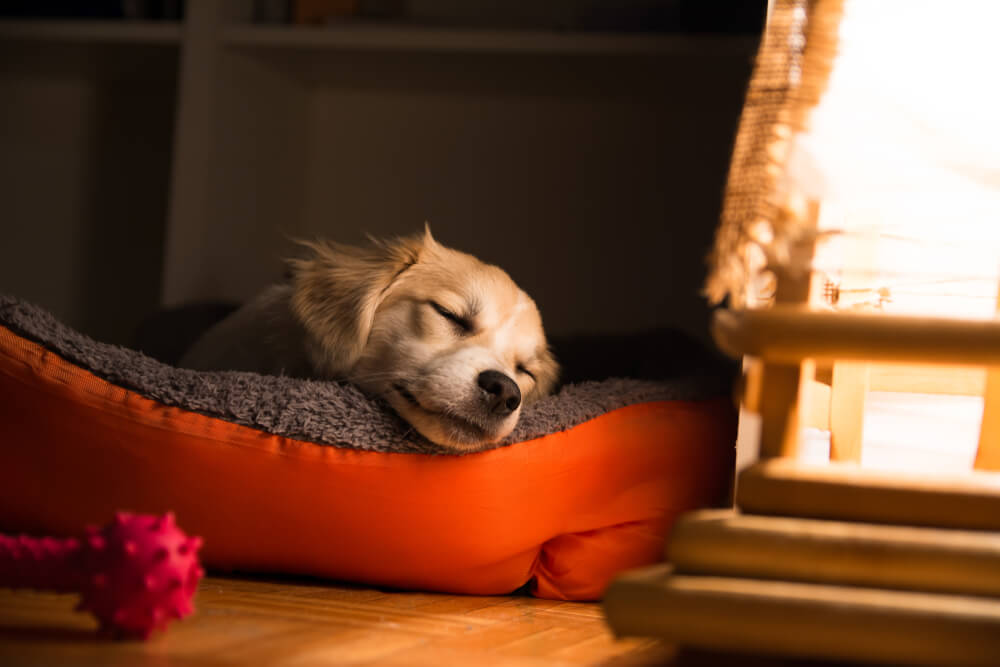
Creating A Safe Space For Sleep
Your puppy needs to feel safe and secure in their sleeping quarters.
Make sure that your new arrival has a safe place to sleep where they won’t be disturbed.
To achieve this, most puppies sleep in crates until they can be left alone without having accidents or chewing furniture.
Many owners keep their puppy’s crate beside their dog bed at night to give extra security.
To ensure the best night’s sleep for your puppy, their crate must be comfortable and secure.
You can line the crate with a soft blanket or two for comfort.
Be wary of wool blankets or mats that may pose a choking hazard if chewed.
If possible, bring home a blanket or toy that smells like your puppy’s dam for additional comfort.
Wherever you place your puppy’s crate, make sure that it’s away from drafts, direct sunlight, and heat sources like radiators and fireplaces.


